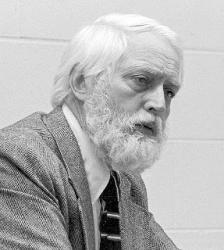Scripture References:
ref. = see commentary
st. 1 = see commentary
st. 2 = Matt. 28: 1
st. 3 = Matt. 28:5-6
st. 4 = Matt. 28:6
st. 5 = Matt. 28:6-7 (Luke 24:5)
This song is based on the Easter story in Matthew 28: 1-10 (also in Mark 16 and Luke 24). The original Dutch versification was a group effort by those who prepared many Bible songs for children (see also PHH 151); it was first published in volume 1 of Alles wordt nieuw (1966), part of a series of Dutch children's hymnals. Using the pen name Sietze Buning, Stanley Wiersma (PHH 25) translated that volume into English to produce All Will Be New (vol. 1, 1982). The refrain captures something of the traditional Easter greeting:
Christ the Lord is risen!
He is risen indeed! Alleluia!
Stanza 1 sets the context of the song by offering a theological summary about the significance of Christ's resurrection, and stanzas 2 through 5 narrate the Easter story.
Liturgical Use:
Easter–sing stanzas 2 through 5 and the refrain to focus only on the narrative part of the song, or, alternatively, sing the entire song and repeat stanza 1 after stanza 5 to set the narrative in a theological frame.
--Psalter Hymnal Handbook


 My Starred Hymns
My Starred Hymns




